Speakers at the conference have been recognised and honoured for their important contributions to the Regenerative Farming movement.
International Guest Speakers
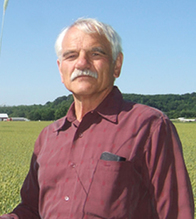
Gary Zimmer, Organic Farmer, Teacher, Consultant, Author
Gary Zimmer is Co-Founder, President, and Chief Visionary Officer of Midwestern BioAg. Known as the “father” of biological agriculture, Zimmer is an internationally known author, speaker and consultant. Zimmer owns Otter Creek Organic Farm, a family-operated, award-winning 1,000 acre farm near Lone Rock, Wisconsin. He is the author of two books, The Biological Farmer and Advancing Biological Farming, and numerous articles on soils and livestock nutrition.
Gary was raised on a Wisconsin dairy farm. He studied dairy nutrition at the Universities of Wisconsin and Hawaii. While teaching and consulting he continued learning, studying and reading, always asking questions and looking at ways of farming with an open mind. His questions about soil and how it relates to healthy and productive plants led him to study The Albrecht Papers. Gary teaches the connection between soil fertility, quality crops and herd health. The concept of mineralised balanced agriculture viewed as a complex inter-active system was to become his foundation philosophy. http://www.midwesternbioag.com
Gary Zimmer is Co-Founder, President, and Chief Visionary Officer of Midwestern BioAg. Known as the “father” of biological agriculture, Zimmer is an internationally known author, speaker and consultant. Zimmer owns Otter Creek Organic Farm, a family-operated, award-winning 1,000 acre farm near Lone Rock, Wisconsin. He is the author of two books, The Biological Farmer and Advancing Biological Farming, and numerous articles on soils and livestock nutrition.
Gary was raised on a Wisconsin dairy farm. He studied dairy nutrition at the Universities of Wisconsin and Hawaii. While teaching and consulting he continued learning, studying and reading, always asking questions and looking at ways of farming with an open mind. His questions about soil and how it relates to healthy and productive plants led him to study The Albrecht Papers. Gary teaches the connection between soil fertility, quality crops and herd health. The concept of mineralised balanced agriculture viewed as a complex inter-active system was to become his foundation philosophy. http://www.midwesternbioag.com
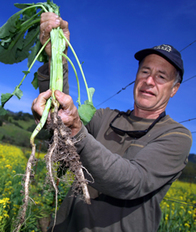
Bob Shaffer, Horticultural Agronomist/Viticulturist for SoilCulture Consulting
Bob Shaffer is a lifelong farmer based in Honaunau, Hawaii who works as a composting consultant for farms and vineyards in temperate and tropical cropping systems. He teaches and consults throughout the western United States as well as internationally. Bob is broadly experienced in development and management of cover crop systems for farms, orchards and vineyards.
Bob also specializes in compost development and use. His clients include compost companies where in daily cooperation with farmers, restaurants and produce packers they compost tons of food waste recycled from San Francisco and create millions of tons of compost that are applied to vegetables and vines just north of the city. Other consultancies include vineyards of the Napa and Sonoma region North of San Francisco, vegetable/fruit farms of California's Central Valley and coffee farms in Guatemala and Hawaii. Bob owns and operates a coffee farm in Hawaii where he also grows a wide variety of tropical crops.
Bob Shaffer is a lifelong farmer based in Honaunau, Hawaii who works as a composting consultant for farms and vineyards in temperate and tropical cropping systems. He teaches and consults throughout the western United States as well as internationally. Bob is broadly experienced in development and management of cover crop systems for farms, orchards and vineyards.
Bob also specializes in compost development and use. His clients include compost companies where in daily cooperation with farmers, restaurants and produce packers they compost tons of food waste recycled from San Francisco and create millions of tons of compost that are applied to vegetables and vines just north of the city. Other consultancies include vineyards of the Napa and Sonoma region North of San Francisco, vegetable/fruit farms of California's Central Valley and coffee farms in Guatemala and Hawaii. Bob owns and operates a coffee farm in Hawaii where he also grows a wide variety of tropical crops.
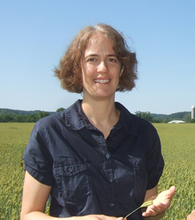
Leilani Zimmer-Durand, Vice President Education Training and Outreach at Midwestern BioAg
As Vice President of Education, Training, and Outreach, Leilani Zimmer-Durand heads the training and education programs at Midwestern BioAg. Since joining the company in 2006, Zimmer-Durand has authored a biological farming book, Advancing Biological Farming, with her father, Gary Zimmer, and speaks both nationally and internationally on the connection between healthy soils and healthy, high-yielding crops. Before joining Midwestern BioAg, she spent 13 years attending graduate school and working in endangered species management in Hawaii. Leilani holds her bachelor’s degree in Philosophy from the University of Wisconsin-Madison, and a master’s degree in Tropical Ecology from the University of Hawaii at Manoa. “The science of plants, whether they’re in a natural ecosystem or an ag system, is very similar,” she explains. “Their needs for light, water, soil nutrients, the basic physiological processes, are alike no matter where the plants are growing.” http://www.midwesternbioag.com
As Vice President of Education, Training, and Outreach, Leilani Zimmer-Durand heads the training and education programs at Midwestern BioAg. Since joining the company in 2006, Zimmer-Durand has authored a biological farming book, Advancing Biological Farming, with her father, Gary Zimmer, and speaks both nationally and internationally on the connection between healthy soils and healthy, high-yielding crops. Before joining Midwestern BioAg, she spent 13 years attending graduate school and working in endangered species management in Hawaii. Leilani holds her bachelor’s degree in Philosophy from the University of Wisconsin-Madison, and a master’s degree in Tropical Ecology from the University of Hawaii at Manoa. “The science of plants, whether they’re in a natural ecosystem or an ag system, is very similar,” she explains. “Their needs for light, water, soil nutrients, the basic physiological processes, are alike no matter where the plants are growing.” http://www.midwesternbioag.com
Other speakers - A to Z
Many of the conference speakers are farmers who have been innovative, early adopters of biological farming systems. Other speakers are consultants and educators who have supported farmers to successfully regenerate their soil and farms.
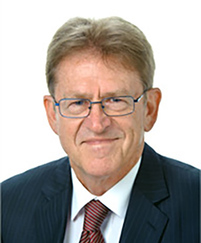
Dr Greg Bender, Australian Soil Management (ASM)
Greg is passionate about smarter land management, meaning the integration of sophisticated natural systems with modern farming practices to build better soils, landscapes and businesses.
Greg's research career began in 1986 with a PhD from ANU in beneficial interactions between plants and soil microbes. In 1990 he joined an Australian agricultural biotechnology company, Inoculant Services Pty Ltd, to develop and manufacture biological alternatives to chemical fertilizers and pesticides. From 1995 to 2000 he was R&D Manager for Seed, Grain & Biotechnology Pty Ltd where he commercialised and delivered useful biological research as products and services for farmers. 2001 to 2006 Greg was National Coordinator for the $10M Soil Biology Initiative funded by the GRDC. The Initiative was Australia’s first national coordinated research effort to understand soil biology and organic matter for the benefit of farmers and other land managers.
In 2011, Greg co-founded ASM to provide individually tailored, structured soil management programs to deliver economic, environmental and social benefits to land managers. The latest scientific research is translated into soil management practices based on measurement and monitoring for productivity, profit and sustainability. http://australiansoil.com.au
Greg is passionate about smarter land management, meaning the integration of sophisticated natural systems with modern farming practices to build better soils, landscapes and businesses.
Greg's research career began in 1986 with a PhD from ANU in beneficial interactions between plants and soil microbes. In 1990 he joined an Australian agricultural biotechnology company, Inoculant Services Pty Ltd, to develop and manufacture biological alternatives to chemical fertilizers and pesticides. From 1995 to 2000 he was R&D Manager for Seed, Grain & Biotechnology Pty Ltd where he commercialised and delivered useful biological research as products and services for farmers. 2001 to 2006 Greg was National Coordinator for the $10M Soil Biology Initiative funded by the GRDC. The Initiative was Australia’s first national coordinated research effort to understand soil biology and organic matter for the benefit of farmers and other land managers.
In 2011, Greg co-founded ASM to provide individually tailored, structured soil management programs to deliver economic, environmental and social benefits to land managers. The latest scientific research is translated into soil management practices based on measurement and monitoring for productivity, profit and sustainability. http://australiansoil.com.au
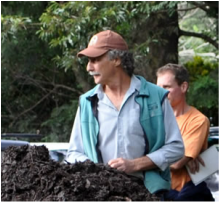
Alan Coates, Coates Horticulture Consultancy, Teacher NSW TAFE
Teacher NSW North Coast TAFE at Wollongbar and owner/agronomist for Coates Horticulture, a agriculture/horticulture advisory consultancy.
Alan has taught sustainable agriculture at NSW TAFE Wollongbar for over 30 years. In addition to biological farming, he teaches Soils, Integrated Pest Management, Production Horticulture and Macadamia Production.
Alan, growing up on a dairy farm, is also a farmer. In recent years he has focused on the macadamia industry as a farmer, consultant and collaborator in research trials for bio-control of insect pests. Alan consults and teaches farmer groups in NSW, QLD and beyond.
Teacher NSW North Coast TAFE at Wollongbar and owner/agronomist for Coates Horticulture, a agriculture/horticulture advisory consultancy.
Alan has taught sustainable agriculture at NSW TAFE Wollongbar for over 30 years. In addition to biological farming, he teaches Soils, Integrated Pest Management, Production Horticulture and Macadamia Production.
Alan, growing up on a dairy farm, is also a farmer. In recent years he has focused on the macadamia industry as a farmer, consultant and collaborator in research trials for bio-control of insect pests. Alan consults and teaches farmer groups in NSW, QLD and beyond.
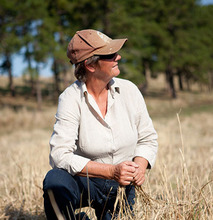
Dr Judi Earl, Agricultural Information & Monitoring Services, Holistic Management™
Judy gained a PhD in pasture ecology when she, conducted the first studies describing the benefits to pasture composition from planned grazing. She has extensive experience in how grasslands and pastures respond to grazing and fertility management and is a widely respected speaker on these matters. A partner in the AIMS consultancy and Holistic Management™ educator, Judi’s main area of interest is working with land managers to enhance the condition and productivity of their land through understanding of ecosystem function and more effective utilisation of available resources.
Judi recently purchased “Glen Orton”, a beautiful but degraded grazing property on the Northern Slopes of NSW. Her goal is to demonstrate the capacity for cattle, grazing the land in tune with natural cycles, to improve land. Restoring health and vitality to the soil and increasing pasture production are key to achieving profit from grass based beef production.
http://www.glenorton.com.au http://aimsag.com.au
Judy gained a PhD in pasture ecology when she, conducted the first studies describing the benefits to pasture composition from planned grazing. She has extensive experience in how grasslands and pastures respond to grazing and fertility management and is a widely respected speaker on these matters. A partner in the AIMS consultancy and Holistic Management™ educator, Judi’s main area of interest is working with land managers to enhance the condition and productivity of their land through understanding of ecosystem function and more effective utilisation of available resources.
Judi recently purchased “Glen Orton”, a beautiful but degraded grazing property on the Northern Slopes of NSW. Her goal is to demonstrate the capacity for cattle, grazing the land in tune with natural cycles, to improve land. Restoring health and vitality to the soil and increasing pasture production are key to achieving profit from grass based beef production.
http://www.glenorton.com.au http://aimsag.com.au
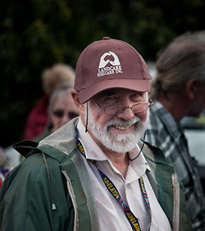
Dr Bernard Doube
Dr Bernard Doube is the Principal of Dung Beetle Solutions Australia (DBSA). He has extensive research experience with dung beetles in South Africa and Australia. He is also an international expert on ticks, dung-breeding flies, earthworms and the biological basis of soil health.
Bernard has co-edited the books Soil biota: management in sustainable farming systems and Biological indicators of soil health and was on the editorial boards of two international soil science journals. Bernard has promoted dung beetles on many radio and TV programs. His recent book Dung down under has sold over 2000 copies. Bernard is available for workshops on soil health as well as dung beetles, earthworms and buffalo flies.
http://www.dungbeetlesolutions.com.au
Dr Bernard Doube is the Principal of Dung Beetle Solutions Australia (DBSA). He has extensive research experience with dung beetles in South Africa and Australia. He is also an international expert on ticks, dung-breeding flies, earthworms and the biological basis of soil health.
Bernard has co-edited the books Soil biota: management in sustainable farming systems and Biological indicators of soil health and was on the editorial boards of two international soil science journals. Bernard has promoted dung beetles on many radio and TV programs. His recent book Dung down under has sold over 2000 copies. Bernard is available for workshops on soil health as well as dung beetles, earthworms and buffalo flies.
http://www.dungbeetlesolutions.com.au
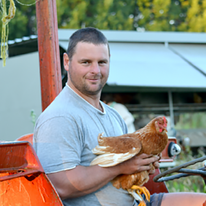
Chris Eggert, Redbank Farm, Wauchope NSW - Organic Dairy/Pasture-Ranged Eggs
Chris and Ann Eggert are fourth generation dairy farmers at Wauchope. Along with Chris’ parents, they run a 170 mixed-breed milking herd producing one million litres on a pasture-based diet. They also produce their own compost which is added to by their 2000 laying hens, which they manage for pasture-ranged organic eggs. The decision to go organic was triggered by high input costs, high stress, stock health problems and high vet bills. The Eggerts have implemented practices to increase organic matter levels, soil biological diversity/abundance, and mineral availability to the plant. Benefits of improved practices include better soil water retention, healthier plants/animals, less tillage, less weeds and disease, lower costs in diesel, seed, fertiliser, repairs and maintenance, less cow replacement costs, lower grain costs, lower herd health costs, and less leaching and runoff of minerals into the subsoil and waterways. http://funorganics.com.au and http://oxhillorganics.com.au
Chris and Ann Eggert are fourth generation dairy farmers at Wauchope. Along with Chris’ parents, they run a 170 mixed-breed milking herd producing one million litres on a pasture-based diet. They also produce their own compost which is added to by their 2000 laying hens, which they manage for pasture-ranged organic eggs. The decision to go organic was triggered by high input costs, high stress, stock health problems and high vet bills. The Eggerts have implemented practices to increase organic matter levels, soil biological diversity/abundance, and mineral availability to the plant. Benefits of improved practices include better soil water retention, healthier plants/animals, less tillage, less weeds and disease, lower costs in diesel, seed, fertiliser, repairs and maintenance, less cow replacement costs, lower grain costs, lower herd health costs, and less leaching and runoff of minerals into the subsoil and waterways. http://funorganics.com.au and http://oxhillorganics.com.au
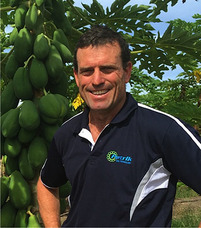
Shane Fitzgerald, Director and Head of research at Petrik Soil Technology
Shane is Director & Head of Research at Petrik Soil Technology. For over 20 years he has been using biological solutions to improve crop performance and sustainability throughout Australia across horticulture, broad acre and pasture. Shane’s keen interest in agriculture started growing up in the Lockyer Valley, on a farm that had disease problems. After years of using ineffective fungicides, Shane became increasing interested in soil chemistry and finding new solutions for improving soil performance and managing plant disease. Shane has a B.Sc. (Ag) at UQ St Lucia and as a researcher he has undertaken numerous projects and scientific trials in biological farming techniques. He has always been involved in research and has published landmark findings in scientific journals in particular the relationship between soil chemical balance and plant health. Early in his career Shane established Total Grower Services, an agronomy business that had its origins in pest scouting in bananas and soil sampling. The business rapidly grew as he discovered and adopted new scientific and biological solutions for growers, a major step was the adoption of the Petrik System. In 2007 Shane purchased Petrik Soil Technology the Australian Petrik Distributor. Petrik Soil Technology is working with some of the largest farming operations in Australia reducing fertilizer and pesticide use while improving yield and quality. He travels throughout Australia supporting growers use of biological approaches to achieve optimum results.
http://www.totalgs.com.au Website: http://www.petriksoiltech.com.au Facebook: https://www.facebook.com/Petriksoil
Shane is Director & Head of Research at Petrik Soil Technology. For over 20 years he has been using biological solutions to improve crop performance and sustainability throughout Australia across horticulture, broad acre and pasture. Shane’s keen interest in agriculture started growing up in the Lockyer Valley, on a farm that had disease problems. After years of using ineffective fungicides, Shane became increasing interested in soil chemistry and finding new solutions for improving soil performance and managing plant disease. Shane has a B.Sc. (Ag) at UQ St Lucia and as a researcher he has undertaken numerous projects and scientific trials in biological farming techniques. He has always been involved in research and has published landmark findings in scientific journals in particular the relationship between soil chemical balance and plant health. Early in his career Shane established Total Grower Services, an agronomy business that had its origins in pest scouting in bananas and soil sampling. The business rapidly grew as he discovered and adopted new scientific and biological solutions for growers, a major step was the adoption of the Petrik System. In 2007 Shane purchased Petrik Soil Technology the Australian Petrik Distributor. Petrik Soil Technology is working with some of the largest farming operations in Australia reducing fertilizer and pesticide use while improving yield and quality. He travels throughout Australia supporting growers use of biological approaches to achieve optimum results.
http://www.totalgs.com.au Website: http://www.petriksoiltech.com.au Facebook: https://www.facebook.com/Petriksoil
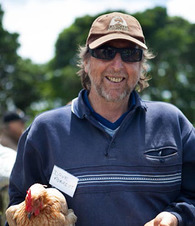
Dave Forrest, Organic Farmer and Teacher at NSW North Coast TAFE
Dave has taught sustainable agriculture at NSW TAFE Wollongbar for over 30 years. In addition to Production Horticulture, Integrated Pest Management and Pasture Production, Dave teaches biological and organic farming classes. He is also a farmer (certified organic) growing and value-adding a diverse range of crops including macadamias, ginger, coffee, bush foods, citrus, mixed fruit and vegetables.
Dave is a founding member and officer of TROPO, Tweed Richmond Organic Producers Organisation, a founding member and officer of SoilCare and a founding member and active seller at the Lismore Organic Market and Mullumbimby Farmers Market. He also serves on numerous industry liaison bodies, serves as a Quality Assurance Auditor and consults to farmers in the Northern Rivers and beyond.
Dave has taught sustainable agriculture at NSW TAFE Wollongbar for over 30 years. In addition to Production Horticulture, Integrated Pest Management and Pasture Production, Dave teaches biological and organic farming classes. He is also a farmer (certified organic) growing and value-adding a diverse range of crops including macadamias, ginger, coffee, bush foods, citrus, mixed fruit and vegetables.
Dave is a founding member and officer of TROPO, Tweed Richmond Organic Producers Organisation, a founding member and officer of SoilCare and a founding member and active seller at the Lismore Organic Market and Mullumbimby Farmers Market. He also serves on numerous industry liaison bodies, serves as a Quality Assurance Auditor and consults to farmers in the Northern Rivers and beyond.
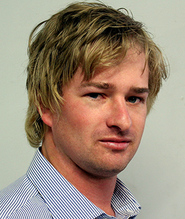
Nathan Free, Managing Director Alkira Organics, Lake Boga, Victoria
Nathan is responsible for vegetable production, packaging, marketing and dispatch at his family’s certified organic horticultural production business, Alkira Organics. The 350-hectare property comprises organic stone fruit and organic vegetables, including zucchini, melon, pumpkin, tomato, corn, broccoli and kale.
The family converted their stonefruit and vegetable ground to certified organic five years ago, giving them an opportunity to develop their business using systems they find to be more ethical and sustainable.
Nathan has been awarded a prestigious Nuffield Scholarship for 2015 supported by Horticulture Australia Limited. He is currently traveling in North America and Europe to study variety selection and soil amendments during conversion from conventional to certified organic farming.
http://alkiraorganics.com.au
Nathan is responsible for vegetable production, packaging, marketing and dispatch at his family’s certified organic horticultural production business, Alkira Organics. The 350-hectare property comprises organic stone fruit and organic vegetables, including zucchini, melon, pumpkin, tomato, corn, broccoli and kale.
The family converted their stonefruit and vegetable ground to certified organic five years ago, giving them an opportunity to develop their business using systems they find to be more ethical and sustainable.
Nathan has been awarded a prestigious Nuffield Scholarship for 2015 supported by Horticulture Australia Limited. He is currently traveling in North America and Europe to study variety selection and soil amendments during conversion from conventional to certified organic farming.
http://alkiraorganics.com.au
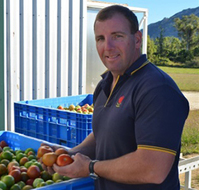
Jamie Jurgens, Jurgens Produce, Tomato, Capsicum, Chile, Sugar Cane, Bowen QLD
Jamie and Melita Jurgens love what they do and see long term prospects for their Bowen, QLD farm. Jamie is the 5th generation of his family tending crops on about 150 hectares, producing tomatoes, chillis and capsicums as well as sugar cane.
Much of the Jurgens’ motivation in improving the sustainability of their production system stems from the need to lower input costs and to be a good member of the community. Jurgens Produce is an active participant in the Great Barrier Reef Marine Park Authority's Reef Guardian program.
The Jurgen’s have gone to lengths to incorporate biological farming practices into their operation and learn about soils and their properties. Jamie says, ‘Don’t be afraid to believe in something natural.’
http://jurgensproduce.com.au
Jamie and Melita Jurgens love what they do and see long term prospects for their Bowen, QLD farm. Jamie is the 5th generation of his family tending crops on about 150 hectares, producing tomatoes, chillis and capsicums as well as sugar cane.
Much of the Jurgens’ motivation in improving the sustainability of their production system stems from the need to lower input costs and to be a good member of the community. Jurgens Produce is an active participant in the Great Barrier Reef Marine Park Authority's Reef Guardian program.
The Jurgen’s have gone to lengths to incorporate biological farming practices into their operation and learn about soils and their properties. Jamie says, ‘Don’t be afraid to believe in something natural.’
http://jurgensproduce.com.au
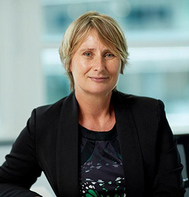
Dr Brenda Kranz, Portfolio Manager for Natural Resources and Integrated Pest Management with Horticulture Innovation Australia (Hort Innovation).
Brenda oversees the development, assessment, execution and reporting of Research and Development projects on soil, water, energy, climate change and integrated pest management using grower levy, commonwealth and/or strategic coinvestor funds. Her current soil projects include: identifying and managing nitrous oxide emissions through understanding the interactions between soil carbon, N fertiliser and irrigation; best practice in inter-row soil management, and use of biochar and other soil amendments for carbon sequestration and building soil health.
Brenda has a BSc in environmental biology, Honours in soil ecology and PhD in insect ecology.
http://www.horticulture.com.au
Brenda oversees the development, assessment, execution and reporting of Research and Development projects on soil, water, energy, climate change and integrated pest management using grower levy, commonwealth and/or strategic coinvestor funds. Her current soil projects include: identifying and managing nitrous oxide emissions through understanding the interactions between soil carbon, N fertiliser and irrigation; best practice in inter-row soil management, and use of biochar and other soil amendments for carbon sequestration and building soil health.
Brenda has a BSc in environmental biology, Honours in soil ecology and PhD in insect ecology.
http://www.horticulture.com.au
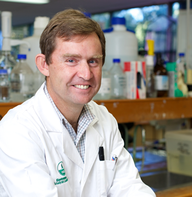
Graham Lancaster, Managing Director, Environmental Analysis Laboratory (EAL)
Graham moved from Environmental Science into Analytical Chemistry in the early 1990's, setting up Environmental Analysis Lab, in Southern Cross University, Lismore, NSW. State of the art equipment and modern facilities, enables EAL to offer a commercially competitive analytical service.
In the mid 90's EAL moved into specialized agricultural analysis primarily related to organic and biological farming. Soil, leaf & compost analysis is designed to enhance soil management and encourage reduced & targeted application of inorganic fertilisers. Good quality composts are encouraged for the ability to increase soil carbon, biological activity and nutrient holding capacity.
http://scu.edu.au/eal/
Graham moved from Environmental Science into Analytical Chemistry in the early 1990's, setting up Environmental Analysis Lab, in Southern Cross University, Lismore, NSW. State of the art equipment and modern facilities, enables EAL to offer a commercially competitive analytical service.
In the mid 90's EAL moved into specialized agricultural analysis primarily related to organic and biological farming. Soil, leaf & compost analysis is designed to enhance soil management and encourage reduced & targeted application of inorganic fertilisers. Good quality composts are encouraged for the ability to increase soil carbon, biological activity and nutrient holding capacity.
http://scu.edu.au/eal/
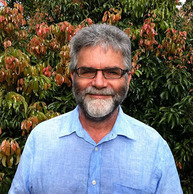
Richard Llewellyn, BioResources, Samford, QLD
Richard is owner-manager of BioResources. He has been developing biological control agents and biological control mass rearing systems for use in horticulture for 30 years. In recent times Richard has become well known for his work in the macadamia industry which now releases a tiny wasp known commercially as 'MacTrix' to control macadamia nutborer. The MacTrix is now a mainstream input in the macadamia industry.
Richard is currently developing a mass rearing system and conducting field trials with Anastatus wasps, an egg parasitoid of Fruitspotting Bug.
Richard received the prestigious Graham Gregory award from Horticulture Australia for his work in biological control of insect pests over three decades.
http://www.bioresources.com.au
Richard is owner-manager of BioResources. He has been developing biological control agents and biological control mass rearing systems for use in horticulture for 30 years. In recent times Richard has become well known for his work in the macadamia industry which now releases a tiny wasp known commercially as 'MacTrix' to control macadamia nutborer. The MacTrix is now a mainstream input in the macadamia industry.
Richard is currently developing a mass rearing system and conducting field trials with Anastatus wasps, an egg parasitoid of Fruitspotting Bug.
Richard received the prestigious Graham Gregory award from Horticulture Australia for his work in biological control of insect pests over three decades.
http://www.bioresources.com.au
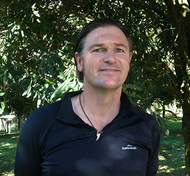
Dr Dean Metcalf, Plant Pathologist, BioControl Australia, Tasmamia
Dean is a plant pathologist with over twenty-five years experience in crop disease management.
Dean has successfully researched, developed and manufactured biological control agents to treat crop disease in numerous industries including; cherries, raspberries, stonefruit, grapes, onions and macadamias. He is currently working on biocontrol of Macadamia Husk Spot for the Macadamia Industry.
Dean founded Biocontrol Australia Pty Ltd in 2002 to research, develop and commercialise biological control agents.
http://www.biocontrol.net.au
Dean is a plant pathologist with over twenty-five years experience in crop disease management.
Dean has successfully researched, developed and manufactured biological control agents to treat crop disease in numerous industries including; cherries, raspberries, stonefruit, grapes, onions and macadamias. He is currently working on biocontrol of Macadamia Husk Spot for the Macadamia Industry.
Dean founded Biocontrol Australia Pty Ltd in 2002 to research, develop and commercialise biological control agents.
http://www.biocontrol.net.au
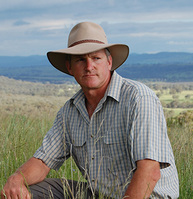
Glenn Morris, General Manager, Figtrees Organic Farms, NSW
FigTrees Organic Farms produces and markets award winning organic beef from 'Wilton Park' at Grafton & 'Billabong' at Inverell in New South Wales.
Glenn has spent more than two decades observing, studying and thoughtfully managing the diverse ecosystems in his care. His keen eye led him to question traditional management practices, search for sustainable solutions and put them into practice.
Not only has he earned a Masters in Sustainable Farming but more importantly Glenn is on the ground 'walking the talk' with a blend of biological and organic farming principles combined with Holistic Management practices. FigTrees Organic Farms is a NSW Landcare Award winner.
http://www.figtreesorganicfarms.com/index.php
FigTrees Organic Farms produces and markets award winning organic beef from 'Wilton Park' at Grafton & 'Billabong' at Inverell in New South Wales.
Glenn has spent more than two decades observing, studying and thoughtfully managing the diverse ecosystems in his care. His keen eye led him to question traditional management practices, search for sustainable solutions and put them into practice.
Not only has he earned a Masters in Sustainable Farming but more importantly Glenn is on the ground 'walking the talk' with a blend of biological and organic farming principles combined with Holistic Management practices. FigTrees Organic Farms is a NSW Landcare Award winner.
http://www.figtreesorganicfarms.com/index.php
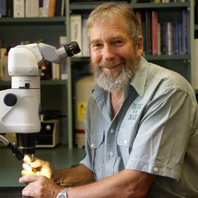
Dan Papachek, Bugs for Bugs, Mundubbera, QLD
Dan is an entomologist and director of Bugs for Bugs, one of Australia’s leading suppliers of biological control agents. He has been involved in integrated pest management (IPM) and has managed beneficial insect mass rearing projects since 1978.
Dan conducts ongoing research and development into biological control and fruit fly management and provides contract research in the field of integrated pest management.
Bugs for Bugs offers a crop monitoring service to assist growers in achieving good IPM and has provided IPM consulting services in countries such as Thailand, Jordan and Morocco.
http://www.bugsforbugs.com.au
Dan is an entomologist and director of Bugs for Bugs, one of Australia’s leading suppliers of biological control agents. He has been involved in integrated pest management (IPM) and has managed beneficial insect mass rearing projects since 1978.
Dan conducts ongoing research and development into biological control and fruit fly management and provides contract research in the field of integrated pest management.
Bugs for Bugs offers a crop monitoring service to assist growers in achieving good IPM and has provided IPM consulting services in countries such as Thailand, Jordan and Morocco.
http://www.bugsforbugs.com.au
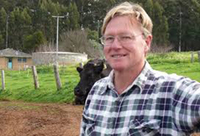
Doug Pow, Manjimup, WA
Doug is an avocado grower and grazier who has been trialling biochar in young avocado plantings and exploring the capacity of dung beetles to sequester carbon in his pastures. Building on international studies he introduced daily self-feeding of a biochar and molasses mix.
Improvements in pasture growth, an increase in clover density, and soil tests all indicate elevated levels of nutrient availability in the soil. Doug's dung beetle- biochar trial has been replicated at near-by Bannister Downs Dairy- a site without an established dung beetle population. Click here for a You Tube Video
Doug is an avocado grower and grazier who has been trialling biochar in young avocado plantings and exploring the capacity of dung beetles to sequester carbon in his pastures. Building on international studies he introduced daily self-feeding of a biochar and molasses mix.
Improvements in pasture growth, an increase in clover density, and soil tests all indicate elevated levels of nutrient availability in the soil. Doug's dung beetle- biochar trial has been replicated at near-by Bannister Downs Dairy- a site without an established dung beetle population. Click here for a You Tube Video
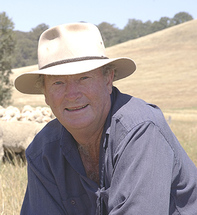
Colin Seis, ‘Winona’, Gulgong, NSW
Colin and his son, Nicholas, own and operate a 2000 acre property where they run around 4000 merino sheep, manage a merino stud, and grow approximately 500 acres of crops annually using a ‘pasture cropping’ technique.
Colin, along with Daryl Cluff, pioneered “pasture cropping” in 1993 and since that time Colin has spent much of his time perfecting this technique. Winona now grows many different types of winter and summer crops, without destroying the perennial pasture base.
The benefits include weed control, stabilising soil erosion, increased soil carbon levels and the production of nutrient-dense, healthy food. Colin was awarded the Bob Hawke Landcare Award in 2014.
http://www.pasturecropping.com
Colin and his son, Nicholas, own and operate a 2000 acre property where they run around 4000 merino sheep, manage a merino stud, and grow approximately 500 acres of crops annually using a ‘pasture cropping’ technique.
Colin, along with Daryl Cluff, pioneered “pasture cropping” in 1993 and since that time Colin has spent much of his time perfecting this technique. Winona now grows many different types of winter and summer crops, without destroying the perennial pasture base.
The benefits include weed control, stabilising soil erosion, increased soil carbon levels and the production of nutrient-dense, healthy food. Colin was awarded the Bob Hawke Landcare Award in 2014.
http://www.pasturecropping.com
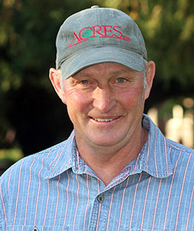
Derek Smith, 'Kenilworth', Guyra, NSW
Derek is the owner/operator of Kenilworth, a 300 acre regeneratively managed farm located minutes outside Guyra in the northern tablelands of New England. A lifelong farmer, Derek and his wife, Fiona, have embraced natural farming as a way to protect biodiversity, and store carbon (humus) in the soils, all the while maintaining consistent food production.
Currently they background cattle for other producers, run open range layer hens that produce high quality eggs for the restaurant and retail trade, prime lambs and free range pork, and in recent years, certified organic vegetables.
Until recently Derek taught Organic Farming Production at NSW TAFE – Armidale. He now offers extended training and short workshops on-farm.
http://www.workingwithnature.net.au
Derek is the owner/operator of Kenilworth, a 300 acre regeneratively managed farm located minutes outside Guyra in the northern tablelands of New England. A lifelong farmer, Derek and his wife, Fiona, have embraced natural farming as a way to protect biodiversity, and store carbon (humus) in the soils, all the while maintaining consistent food production.
Currently they background cattle for other producers, run open range layer hens that produce high quality eggs for the restaurant and retail trade, prime lambs and free range pork, and in recent years, certified organic vegetables.
Until recently Derek taught Organic Farming Production at NSW TAFE – Armidale. He now offers extended training and short workshops on-farm.
http://www.workingwithnature.net.au
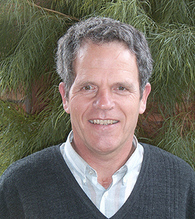
Dr Maarten Stapper, BioLogic AgFood
Maarten began a career in agricultural science forty years ago, has international experiences on four continents and is a former senior scientist with CSIRO. Employing a holistic approach, he is an expert across a wide spectrum of agricultural areas in research, development and extension.
He has found low external input agriculture to be most sustainable for producers, consumers and landscapes. Maarten’s focus is on farming systems that help farmers improve the profitability of their operations by harnessing the power of natural processes with practices creating healthy soils and improving quality of produce.
Maarten featured in Australian Story “Back to Earth” in 2009 about this new road in food production research away from synthetic fertilizers, chemicals and GMO.
http://drmaartenstapper.com.au
Maarten began a career in agricultural science forty years ago, has international experiences on four continents and is a former senior scientist with CSIRO. Employing a holistic approach, he is an expert across a wide spectrum of agricultural areas in research, development and extension.
He has found low external input agriculture to be most sustainable for producers, consumers and landscapes. Maarten’s focus is on farming systems that help farmers improve the profitability of their operations by harnessing the power of natural processes with practices creating healthy soils and improving quality of produce.
Maarten featured in Australian Story “Back to Earth” in 2009 about this new road in food production research away from synthetic fertilizers, chemicals and GMO.
http://drmaartenstapper.com.au
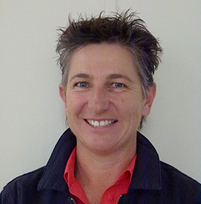
Dr Kate Steel, Rural Extension Officer, Lismore City Council
Kate is working with the Lismore City Council’s Environment Strategies team to introduce their new Rural Landholder Initiative. The RLI aims to promote best practice land management to primary producers and hobby farmers, particularly in areas of Biodiversity Enhancement.
Kate has made a career in rural extension and education, with a passion for private land voluntary conservation. She has worked in Government and Community Landcare and Catchment Management networks throughout Queensland, Australia and overseas engaging farmers and groups in stewardship activities for healthy soils, waterways, bush and seas. Kate’s research background in Landscape Ecology and Natural Systems Management has evolved into an enthusiastic concern for declining land and food quality and a vocational desire to support life sustaining polyculture and permaculture systems.
Kate is working with the Lismore City Council’s Environment Strategies team to introduce their new Rural Landholder Initiative. The RLI aims to promote best practice land management to primary producers and hobby farmers, particularly in areas of Biodiversity Enhancement.
Kate has made a career in rural extension and education, with a passion for private land voluntary conservation. She has worked in Government and Community Landcare and Catchment Management networks throughout Queensland, Australia and overseas engaging farmers and groups in stewardship activities for healthy soils, waterways, bush and seas. Kate’s research background in Landscape Ecology and Natural Systems Management has evolved into an enthusiastic concern for declining land and food quality and a vocational desire to support life sustaining polyculture and permaculture systems.
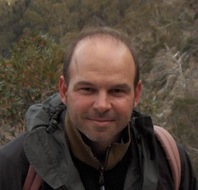
Lukas Van Zwieten (PhD), is a Principal Research Scientist for the New South Wales Department of Primary Industries, and holds the position of Adjunct Professor at Southern Cross Plant Science (Southern Cross University).
Lukas has over 70 publications in the field of soil science, with many focusing on understanding the role of biochar in agricultural systems. His more recent research focuses on N and C cycling, and impacts of herbicides on soil function.
Lukas has over 70 publications in the field of soil science, with many focusing on understanding the role of biochar in agricultural systems. His more recent research focuses on N and C cycling, and impacts of herbicides on soil function.
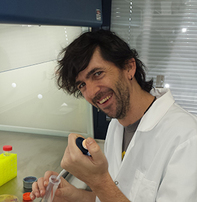
Dr Neil Wilson
Neil is a Sydney-based academic and has a degree in ecology and a PhD in molecular microbiology. He has worked in a range of microbiological fields including bioremediation of contaminated soils, antibiotic resistance in pathogenic bacteria and genome sequencing of rhizosphere bacteria.
Neil is currently a postdoctoral researcher in the Pulsford laboratory (formerly SunFix) in the Faculty of Agriculture at the University of Sydney.
His current research projects are focussed on utilising emerging methods for measuring the diversity of soil microbes and leveraging this information to enhance soil management practices.
Over the past year, he has been collaborating with Shane Fitzgerald of Petrik Soil Technology, using cutting edge DNA sequencing techniques to investigate how biological inputs affect soil microorganisms infield.
Neil is a Sydney-based academic and has a degree in ecology and a PhD in molecular microbiology. He has worked in a range of microbiological fields including bioremediation of contaminated soils, antibiotic resistance in pathogenic bacteria and genome sequencing of rhizosphere bacteria.
Neil is currently a postdoctoral researcher in the Pulsford laboratory (formerly SunFix) in the Faculty of Agriculture at the University of Sydney.
His current research projects are focussed on utilising emerging methods for measuring the diversity of soil microbes and leveraging this information to enhance soil management practices.
Over the past year, he has been collaborating with Shane Fitzgerald of Petrik Soil Technology, using cutting edge DNA sequencing techniques to investigate how biological inputs affect soil microorganisms infield.
User accepts all risks and responsibilities for losses, damages, costs and other consequences resulting directly or indirectly from using this site and any information or material available from it.
